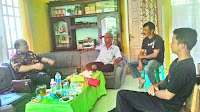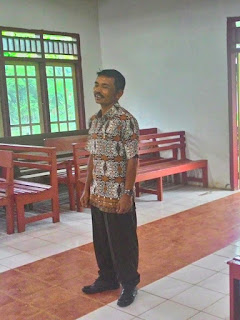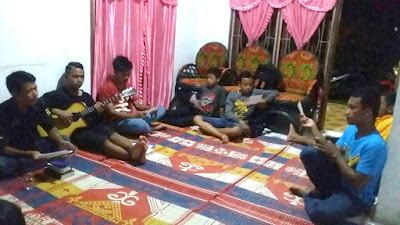Growing with
National Networking
One semester has been nearly completed by the program of Stube HEMAT multiplication in Bengkulu, counted from January-December 2017. One by one, youth surrounding the program are encouraged to have self-empowerment. The person in charge of this program, Yohanes Dian Alpasa who manages the activity from his basecamp located on North Bengkulu Utara, Padang Jaya District, Margasakti sub-district, village VII, MT RT 02, keeps spirit full to obtain achievement useful for youth.
During the first semester period, two supports are coming for this multiplication program. The first support is organic fertilizer start-up (a short of yeast to proliferate organic bacteria) from the Foundation of General Sudirman in Yogyakarta. The second support is coming from Bernadeta Arum, a student who ever followed a retreat of leadership and examination preparation held by BOPKRI 2 Vocational School facilitated by Stube-HEMAT Yogyakarta in the year of 2015 at ‘Omah Jawi’ guest house, Kaliurang, Yogyakarta.
 One of programs of Stube-HEMAT Multiplication in Bengkulu is campaigning organic agriculture way of planting to reduce the use of chemical substance and to eliminate plant disease high risk. This plan gets support from General Soedirman Centre via its productive division named PT. Bumi Maringi Mukti. General Soedirman Centre is one networking focusing on farmers and village authority empowerment in Central Java and surrounding Yogyakarta province. One of the foundation activities is producing yeast organic which is specially made from volcanic substance of Mount Merapi. Actually, in 2013 Stube-HEMAT Yogyakarta sent Yohanes Dian Alpasa to participate to School for Farmers held by the foundation and People Economy Studies of Gadjah Mada University. Since then, networking and communication are maintained. More over after Agus Subagyo, the contact person of the foundation and also an activist of farmer empowerment has ever been a facilitator on organic agriculture training of Stube-HEMAT Yogyakarta in 2011. The foundation supported 4 bottles of organic fertilizer of 210 ml each.
One of programs of Stube-HEMAT Multiplication in Bengkulu is campaigning organic agriculture way of planting to reduce the use of chemical substance and to eliminate plant disease high risk. This plan gets support from General Soedirman Centre via its productive division named PT. Bumi Maringi Mukti. General Soedirman Centre is one networking focusing on farmers and village authority empowerment in Central Java and surrounding Yogyakarta province. One of the foundation activities is producing yeast organic which is specially made from volcanic substance of Mount Merapi. Actually, in 2013 Stube-HEMAT Yogyakarta sent Yohanes Dian Alpasa to participate to School for Farmers held by the foundation and People Economy Studies of Gadjah Mada University. Since then, networking and communication are maintained. More over after Agus Subagyo, the contact person of the foundation and also an activist of farmer empowerment has ever been a facilitator on organic agriculture training of Stube-HEMAT Yogyakarta in 2011. The foundation supported 4 bottles of organic fertilizer of 210 ml each.  Bernadeta Arum who is working in one Publisher Company in Yogyakarta sent a book entitled “Kitab Penyihir Aksara” written by Brili Agung. The book tells about how to write, motivation and simple technique of writing to produce a book. Further, Bernadeta Arum opens a chance to open networking if Stube HEMAT wants to publish books.
Bernadeta Arum who is working in one Publisher Company in Yogyakarta sent a book entitled “Kitab Penyihir Aksara” written by Brili Agung. The book tells about how to write, motivation and simple technique of writing to produce a book. Further, Bernadeta Arum opens a chance to open networking if Stube HEMAT wants to publish books.Multiplication Program of Stube HEMAT in Bengkulu feels lucky for all received blessings that support the mission of human development in North Bengkulu. The study process in Yogyakarta is so useful that it may be an important start to develop local area and do a new work. Of course, this program will grow with national networking support. (YDA)












































































